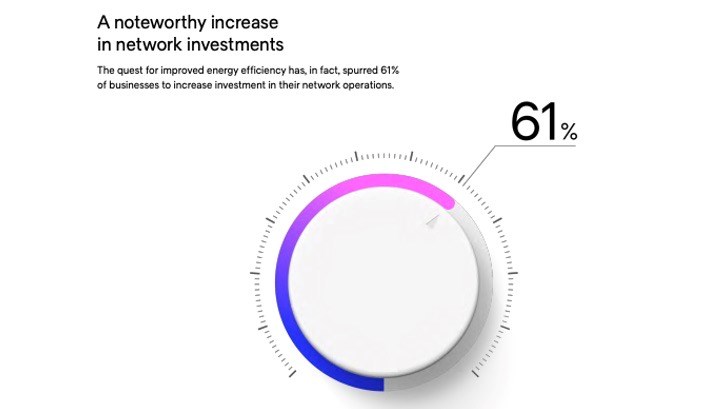
- The energy crisis is making business leaders more anxious about pricing and supply, a new report from Arelion has found
- But a few positive trends are stemming from the energy crunch
- Enterprises are increasingly investing in modernising their network operations and are focused on sustainable solutions
- Arelion chief evangelist Mattias Fridström believes enterprises will shift to less power-hungry technology and move to the cloud
The ongoing energy crisis is driving enterprises to modernise their networking operations and adopt more sustainable practices and solutions, according to new research.
In the report, “The energy crisis: is it hurting enterprise networks?”, international network operator Arelion (formerly Telia Carrier) identified the impact of skyrocketing energy prices and supply shortages on enterprise networks (LAN, WAN and cloud) run by large businesses (with more than 4,000 staff) based in the US, the UK, Germany and France.
Alongside heightened concerns about the impact of energy costs and possible power shortages, the research discovered “a noteworthy” tendency towards the modernisation of network operations to achieve greater energy efficiency. In fact, the quest for enhanced energy efficiency has prompted 61% of the businesses surveyed to increase investments in their network operations (see image, above).
In terms of geographical breakdown, business leaders in the US are leading this trend, with 73% of respondents claiming to have boosted investments into making their network operations more energy efficient, followed by Germany (69%), the UK (49%) and France (48%).
Mattias Fridström, VP and chief evangelist at Arelion, told TelecomTV that these findings show that companies need to move away from old equipment and solutions as new technology is “a lot less power hungry”.
He also suggested that the findings of the report will encourage companies to modernise their networks and ensure they have a much more energy-efficient production. “I also think this is going to drive the usage of the cloud more, because I think the cloud itself is much more energy efficient than having your servers in your basement and running on very old technology,” he added.
“What this report shows is that every enterprise needs to consider its energy consumption going forward and reducing the energy footprint in the network is going to be very important,” explained Fridström.
According to the survey, more than half (52%) of respondents are accelerating and enhancing their network sustainability efforts, with businesses in the US most likely to adopt this course of action, followed by Germany, France and the UK. Fridström believes this shows a shift in focus for enterprises, which will not only increasingly start to modernise their networks but will “take the opportunity to be more sustainable” and ensure “they use green energy”.
But it’s not all good news: The study pointed to “some cause for concern,” as 29% of enterprises have seen their sustainability efforts impeded by the energy crisis.
To boost their sustainability efforts by sourcing greener energy, businesses are increasingly using solar energy, viewing it as having the greatest potential to power network operations. While solar was selected by 40% of respondents and was the dominant choice in most countries surveyed in the report, Arelion noted that France is a “notable exception”, with 51% of business leaders there maintaining that nuclear power has the most potential.
The report also highlighted that higher energy prices have led an “overwhelming” 82% of leaders to update the prices of their own services. According to the findings, 69% of enterprises have raised their prices, passing on some or all of their heavier cost burden. “This is especially the case in Europe and particularly in Germany where 78% have pushed up their own prices to customers, compared to the 57% of US business leaders who have done so”, Arelion noted in its report.
Surprisingly, though, 18% of decision-makers across the four markets surveyed claimed to have reduced prices, “perhaps swallowing the additional costs to boost competitiveness in a distressed business environment”.
- Yanitsa Boyadzhieva, Deputy Editor, TelecomTV
Email Newsletters
Sign up to receive TelecomTV's top news and videos, plus exclusive subscriber-only content direct to your inbox.




